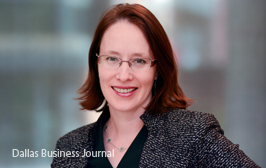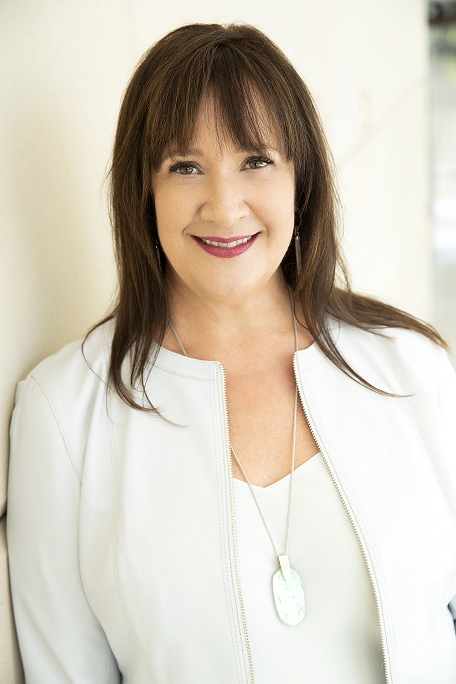When Dena Stroh interned at Vinson & Elkins as an undergraduate student, she made a decision. One day, she would serve as lead co-chair of Dallas-based Attorneys Serving the Community.
Attorneys Serving the Community, or ASC, is a philanthropic organization made up of women attorneys in the Dallas-area. What started out with a group of attorneys organizing a luncheon to raise money for a local charity has grown over 34 years, adding events and raising more than $5 million for its partnered nonprofits. It’s also become an important networking organization for the almost 300 women lawyers who are members.
In 1995, when Stroh was interning, there weren’t many women in the upper rung of the legal world, she said. The majority of women worked as legal secretaries, paralegals or legal assistants. As Stroh rotated through different practice areas, she met Cynthia Stephens, the only female partner at V&E’s real estate practice at the time. Stroh observed Stephens at firm events.
“All the lawyers – all the men – would talk amongst themselves and all the staff people – which is all the women – would talk amongst themselves, as Cindy would float,” Stroh said. “And so I was fascinated by this. It was almost like a sociology thing.”

Stephens introduced Stroh to ASC. Helping out at the annual luncheon, Stroh not only got to meet former Texas Governor Ann Richards, the keynote that year, but saw firsthand what a group of female attorneys can accomplish together – organizing a high-quality event and raising thousands for a deserving organization.
“At the time, I wasn’t sure I wanted to be a lawyer, and I wasn’t sure I wanted to practice in Dallas,” Stroh said. “But I promised myself that if I became a lawyer, and if I practiced in Dallas, I wanted to chair Attorneys Serving the Community. Before I went to law school, I knew I wanted to chair ASC.”
Stroh, now general counsel of the North Texas Tollway Authority, joined the organization in 2001 and became lead co-chair in 2013.
Founded in 1987, ASC has raised money for a number of organizations, all of which directly help women, children and families, including CASA and Mosaic Family Services. This year’s beneficiary is Hope Supply Co.
When established, ASC was meant to be a way to connect organizations to women lawyers and their philanthropy, said Elizabeth Lang-Miers, former judge, partner at Locke Lord and a founding member of ASC. They selected organizations that helped women and children, but not groups that already had big fundraisers or mature fundraising activities. The first luncheon benefited the Women’s Foundation, which later became the Texas Women’s Foundation.
“We had pretty small goal,” Lang-Miers said. “I think we started half hoping to break even and maybe give some money to an organization – around $10,000.”
It’s grown significantly, raising between $250,000 and $300,000 annually. As more people are aware of ASC, more people are willing to contribute, Lang-Miers said. Initially, people would donate to support a specific organization. Now people give money every year because they see it supporting ASC.
“I’m impressed by the money they’re raising now and how many women they’re engaging in their great work,” Lang-Miers said.
Each year, the group selects one organization from a pool of applications to partner with. Size is important – there’s a goldilocks element to it. Too large, and the funds raised by ASC won’t be impactful. On the other hand, organizations that are too small won’t have the bandwidth or manpower to be a philanthropy partner, said Cortland Grynwald, vice president of legal, compliance and risk practice at Pearson Partners International and 2016 ASC lead co-chair.
Dues and any other money raised goes straight to the selected charity. The charity needs to have enough manpower to provide volunteer hours and usually one staff person dedicated to ASC work. Because ASC doesn’t have a bank account, the organization also needs to provide the upfront costs, like venue deposit, Grynwald said. They payoff includes not only the funds raised but the enormous exposure to a very lucrative set of deep pockets, both in the legal and corporate world.
For 34 years, the organization has successfully raised money through its luncheon, later adding events like a silent auction, a Neiman Marcus fashion show and a 5K run. Depending on their bandwidth, ASC members can just pay the dues or become active in one of a number of committees. It’s a highly organized group, more impressive because it’s run by institutional memory.
“We don’t really even exist on paper,” Grynwald said. “We don’t have a bank account, bylaws or a formal structure.”
For Grynwald, ASC fulfills both a personal and professional obligation she feels toward giving back to the community. It’s introduced her to a number of nonprofit organizations she wouldn’t have otherwise known about, but she also appreciates the networking element of the group.
“It gave me an opportunity to meet potential clients and candidates because I was in legal recruiting,” Grynwald said. “So, I felt that ASC was an organization that would really allow me to check off a lot of personal and professional boxes.”
Its impact on the women attorneys involved exceeds the feelings they get from helping the community. The organization focuses on creating opportunities for in-house ASC members and ASC members at law firms to network, get to know each other and increase business opportunities.
“The career aspect is just a real bonus,” Lang-Miers said. “It’s not necessarily anything we had in mind. So it’s evolved into a great connector for the women that are engaged in it.”
Amy Elizabeth Stewart, founder and managing principal of Amy Stewart Law and another former ASC chair, got one of her first big breaks at a Fortune 500 company through an ASC connection.
“The introduction was made by a person in the litigation section at the company to the head of litigation,” Stewart said. “It wasn’t a huge project, but it was a couple of things, and it ended up truly being a launch pad for me.”

It was through Stewart that current ASC lead co-chair, Rebecca Massiatte, co-founding member of JMA Firm, learned about the organization in 2008. Massiatte was still relatively new to practicing law, and Stewart, whom she knew through her daughter’s day care, told her to get involved.
“I remember my very first charity selection meeting was that summer,” Massiatte said. “I loved everything about it from, from meeting people, to knowing it was directly community-driven to being with like-minded women.”
Monthly meetings for the organization are held at different law firms during lunchtime, Massiatte said.
“So that was another way to kind of get to know the legal market,” Massiatte said. “It’s literally not just the people but also the physical space in the Dallas area.”
During the Covid pandemic, the meetings have been virtual, and Massiatte’s term as lead co-chair was extended by another year. The 2020 luncheon was canceled, but the organization added virtual events, such as cooking classes. This year’s silent auction and luncheon will be virtual as well.
After the June luncheon, the selection committee will meet in July to select new beneficiaries. Massiatte admits that after working with Hope Supply Co. for two years, moving on will be a bit difficult.
“It’s like a marriage and then a breakup,” she joked.
Even after the official relationship with an organization is over, sometimes members like to stay involved and continue to help organizations.
For Stroh, in addition to helping the community, being involved in ASC has helped her set an example for attorneys, just like the ASC luncheon was impactful to her younger self.
In December 2013, Stroh gave birth to her third child while lead co-chair. During the February meeting, while she was still on maternity leave, she ran the meeting with her infant and breastfed him.
“I have heard more about doing that than anything else I’ve done in my entire career,” Stroh said. “So it made a strong enough impact on the other women in that planning meeting.”
Stroh also credits ASC for helping her get her current role at NTTA. When the position at NTTA was posted, Stroh was in oil and gas, but the price of oil was dropping “like a rock.” She contacted the recruiter, whom she didn’t know personally, and was surprised when she placed Stroh at the top of her list.
It was later when she was clearing out her desk that she found a note the recruiter had sent her after the luncheon.
“I was like, oh my gosh,” Stroh said. “One of the reasons that I went to the top of her list was because of ASC. She was impressed with what they did.”
Stroh likes to tell this story to young lawyers. She says that most of the jobs she’s gotten has been in part or directly because of her involvement in the bar association or the community.
“That is not at all why chaired ASC.” Stroh said. “I do these things to feed my soul genuinely, but that’s a nice side benefit.”
